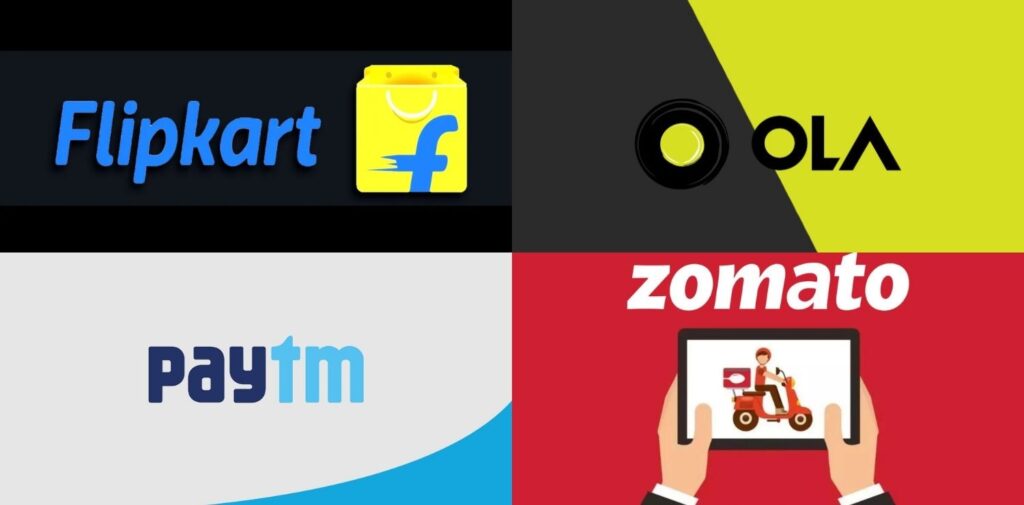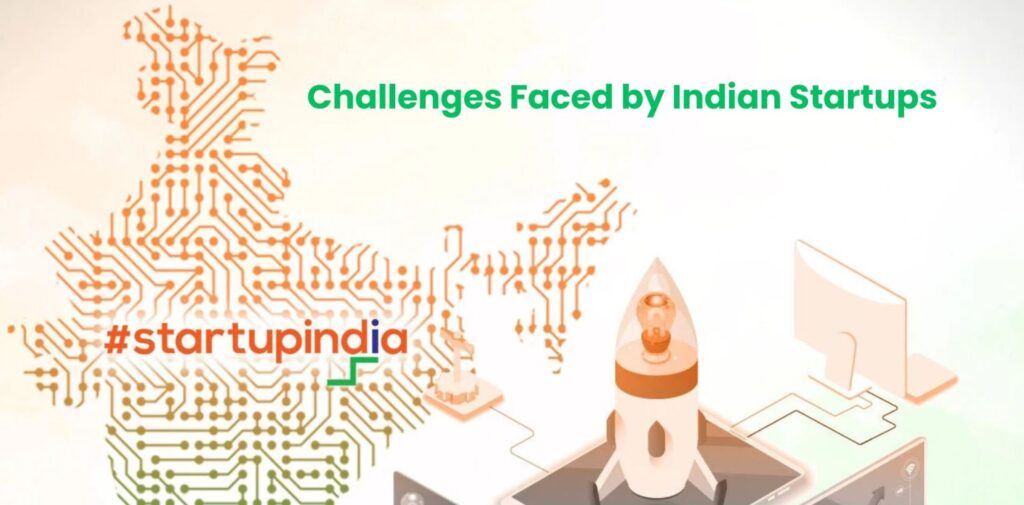The growth of Indian startups post-2000 has been one of the most exciting stories in the world of business. Over the last two decades, India has transformed into one of the most vibrant startup ecosystems in the world, producing several “unicorns” (startups valued at over $1 billion) and disrupting industries across the globe. This boom has been driven by a combination of factors, including the rise of digital technology, increased access to funding, and a growing culture of entrepreneurship. In this article, we will explore the rise of Indian startups post-2000, their success stories, and the challenges they face.
The Rise of Indian Startups: A New Era Begins
In the early 2000s, India was known for its strong IT and software development industry. While global tech giants like Infosys, Wipro, and TCS were already making waves, the concept of startups—particularly in the tech and e-commerce sectors—was still in its infancy. However, by the mid-2000s, several factors began to converge, signaling the start of a new era for Indian entrepreneurship.
The widespread availability of the internet, the increasing number of smartphone users, and the advent of affordable data plans created a fertile ground for tech-driven startups to emerge. As the Indian economy continued to grow, young entrepreneurs started to take risks and build innovative businesses in sectors like e-commerce, fintech, edtech, healthtech, and logistics.

Key Drivers of Startup Growth in India
The growth of startups in India has been fueled by a combination of various factors that have helped create a thriving ecosystem.
1. Digital Transformation and Internet Penetration
The rapid increase in internet and mobile phone penetration has been a game-changer for Indian startups. According to reports, India now has over 750 million internet users, with a significant chunk of these users coming from smaller towns and rural areas. This digital transformation has enabled startups to reach a much larger audience, allowing them to scale quickly and efficiently.
2. Access to Funding
The availability of venture capital (VC) and angel investors has been crucial in propelling the growth of Indian startups. International investors like Sequoia Capital, Accel, and Tiger Global, as well as domestic investors like Indian Angel Network, have provided crucial funding to startups at various stages of their growth. The emergence of government-backed programs like Startup India and the Atal Innovation Mission has also helped foster an environment conducive to entrepreneurship.
3. Government Support and Policies
The Indian government has played an essential role in supporting startups through initiatives like Startup India, which was launched in 2016. This program provided incentives like tax exemptions, easy patent registration, and faster regulatory approvals. Additionally, India has witnessed the emergence of various incubators, accelerators, and co-working spaces, helping startups gain access to resources and networks that are crucial for their growth.
4. A Young, Entrepreneurial Workforce
India’s young and tech-savvy population has been another key driver for the growth of startups. With a large proportion of the population below the age of 35, India has become a hub for innovation, as young people are more willing to experiment and take risks. Universities and colleges across the country have also seen a rise in entrepreneurship programs and courses, further fueling the startup culture.

Unicorns: India’s Success Stories
The term “unicorn” refers to privately held startups valued at over $1 billion, and India has produced several unicorns in the past two decades. These startups have not only disrupted industries but also attracted international attention, showcasing India’s potential as a global startup hub.
1. Flipkart
Founded in 2007 by Sachin Bansal and Binny Bansal, Flipkart is often considered the poster child of India’s e-commerce revolution. It started as an online bookstore and soon expanded into a full-fledged e-commerce platform. In 2018, Flipkart was acquired by Walmart for $16 billion, marking one of the largest acquisitions in India’s startup history. Flipkart’s success paved the way for other e-commerce platforms like Amazon India and Snapdeal.
2. Ola
Founded in 2010 by Bhavish Aggarwal and Ankit Bhati, Ola is India’s leading ride-hailing service, competing with global giants like Uber. Ola disrupted the traditional taxi industry by offering a more convenient and affordable way to travel. The company expanded rapidly across cities in India and even ventured into international markets like Australia and the UK. Ola became a unicorn in 2014 and has since diversified its offerings to include electric vehicles and food delivery services.
3. Paytm
Paytm, founded by Vijay Shekhar Sharma in 2010, started as a mobile wallet and quickly became one of the most widely used digital payment platforms in India. The company expanded into areas such as e-commerce, financial services, and entertainment. Paytm became India’s first fintech unicorn and has raised billions of dollars in funding from investors such as SoftBank, Alibaba, and Berkshire Hathaway.
4. Zomato
Founded by Deepinder Goyal and Pankaj Chaddah in 2008, Zomato is an online restaurant discovery and food delivery platform that has revolutionized the way Indians dine. The platform started as a simple restaurant review site and later expanded into food delivery services. Zomato became a unicorn in 2015 and has since expanded internationally, with operations in several countries. It is now listed on the Indian stock exchange, a testament to its continued success.
Disrupting Traditional Industries
Startups in India have not only created new industries but have also disrupted traditional sectors, challenging established players and forcing them to innovate.
1. E-Commerce and Retail
Startups like Flipkart, Myntra, and Snapdeal have revolutionized the retail sector in India. E-commerce platforms have made shopping more convenient, offering a wide variety of products at competitive prices. These platforms have also enabled small businesses and artisans to sell their products online, expanding their reach and increasing their revenue.
2. Fintech
The fintech sector in India has exploded in the past decade, with startups like Paytm, PhonePe, and Razorpay changing the way Indians handle payments, savings, and investments. Digital wallets, UPI (Unified Payments Interface), and lending platforms have democratized financial services, making them accessible to millions of Indians, especially in rural areas. The success of Indian fintech companies has also attracted global investors and helped India become one of the largest fintech markets in the world.
3. HealthTech and EdTech
Healthtech and edtech startups have disrupted traditional healthcare and education systems in India. Companies like Practo (healthcare), Byju’s (education), and Unacademy (online learning) have introduced innovative solutions to address gaps in these sectors. These startups have made healthcare and education more accessible, affordable, and personalized, helping millions of Indians improve their quality of life.
4. Logistics and Mobility
Startups like Ola, Swiggy, and Delhivery have transformed the logistics and mobility sectors. From ride-hailing services to food delivery platforms, these companies have created more efficient systems, reducing delivery times and costs. The rise of these startups has also created new job opportunities and enhanced the overall convenience of urban life.

Challenges Faced by Indian Startups
While the growth of Indian startups has been impressive, it has not been without its challenges. Many entrepreneurs face significant hurdles in their journey, including:
1. Access to Funding
Although venture capital has been flowing into India, access to funding remains a challenge for many early-stage startups, especially in non-tech sectors. Startups often face intense competition for investor attention, and securing funding can be a long and difficult process.
2. Regulatory Hurdles
Navigating the complex regulatory environment in India is another challenge faced by startups. Although the government has made strides in improving ease of doing business, startups often have to deal with cumbersome paperwork, slow approvals, and complex tax structures.
3. Competition
Indian startups face fierce competition not only from other domestic startups but also from global giants like Amazon, Google, and Uber. Competing with these established players requires innovation, substantial capital, and the ability to scale rapidly.
4. Talent Acquisition
Finding and retaining top talent is another challenge for startups in India. While there is a large pool of skilled professionals, the demand for talented workers in tech and management roles often exceeds supply, leading to talent shortages and higher salaries.
Conclusion: The Growth of Indian Startups
The growth of Indian startups since 2000 has been nothing short of remarkable. With increasing digital penetration, access to funding, and government support, India has become one of the world’s most dynamic startup ecosystems. The rise of unicorns like Flipkart, Ola, Paytm, and Zomato has not only disrupted traditional industries but also positioned India as a global leader in innovation.
However, challenges such as regulatory hurdles, funding access, and intense competition remain. Despite these obstacles, the future of Indian startups looks bright, with many entrepreneurs continuing to innovate and create solutions that address the unique needs of India’s diverse population. As the startup ecosystem matures, India is poised to see even more unicorns and disruptors emerge, driving the economy forward and shaping the global business landscape.




